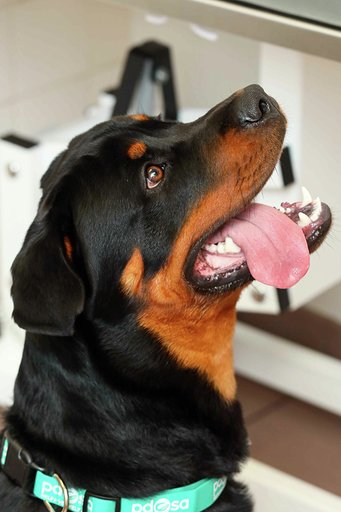
Latest findings from leading vet charity PDSA reveal a record decline in the number of young pets receiving their vaccinations, leaving many of the North West pet population unprotected and exposed to potentially fatal diseases.
The 2019 PDSA Animal Wellbeing (PAW) Report, the largest report of its kind, found the number of UK pets receiving their primary vaccinations when young – which protect pets from deadly diseases and viruses – has dropped dramatically from 84% in 2016 to 66% in 2019, an 18 percentage point decrease in just three years. This could leave over 7 million UK pets unprotected.
Findings from the 2019 PAW Report also show that one third of UK pets aren’t receiving regular booster vaccines, which keep them protected from potentially fatal diseases.
Of those UK pet owners who hadn’t vaccinated their pet, 17% said that they deemed it ‘too expensive’, an additional 17% said their pet didn’t come into contact with other animals. Other explanations included 16% who felt it was ‘unnecessary’, while other pet owners said that their ‘pet found going to the vets very stressful’.
The worrying findings coincide with growing hesitancy towards vaccinations in children, renewing One Health concerns that an “anti-vax” phenomenon – scepticism towards the safety and efficacy of vaccines – could be directed towards pets as well as children. Falling vaccination rates have been cited by the World Health Organisation as one of the top ten threats to global health. In 2019, the UK lost its measles-free status, three years after the virus was eliminated in the country.
Commenting on the findings, PDSA Senior Vet, Sean Wensley, said: “It’s extremely worrying to see such a decline in the number of young pets receiving their primary vaccinations.
“Vaccinations have helped to protect millions of pets from serious diseases such as parvovirus, cat flu and Rabbit Viral Haemorrhagic Disease. If people don’t vaccinate we risk seeing a rise in extremely unpleasant, preventable, diseases that can cause considerable animal suffering and death.”
Sean adds: “In addition to the vaccination findings, the PAW Report found there has been a decline in owners who feel informed about all of their pets’ 5 Welfare Needs – the five things that all pets need to be healthy and happy contributing to millions of our much-loved pets not having their basic needs met. For example, 1.9 million dogs are left alone for five or more hours every day and 1.3 million dogs aren’t walked every day, increasing the risks of obesity and poor mental wellbeing linked to isolation and boredom.
The PDSA Animal Wellbeing (PAW) Report has monitored pet welfare issues across the UK for the last nine years, surveying over 73,500 people in this time. Produced in conjunction with YouGov, the PAW Report provides a robust insight into the lives of pet dogs, cats and rabbits across the UK.
Other concerning findings from PDSA’s latest PAW Report, which the charity believes is leading to unnecessary misery for the UK’s pets, include that 31% of dog owners, 56% of cat owners respectively aren’t aware of their pet’s current weight or body condition score, meaning millions don’t know if their pet is overweight and suffering in silence.
43% of cats live in a multi-cat household, when cats generally prefer to live alone.
Bunnies are highly misunderstood pets and 25% are homed in inappropriate, small hutches where they are unable to exercise and show natural behaviours.
26% of owners fail to feed their rabbits hay as part of their main diet, and 21% are fed inappropriate ‘muesli-style’ food, both of which can cause serious dental and weight problems in the UK’s bunnies.






